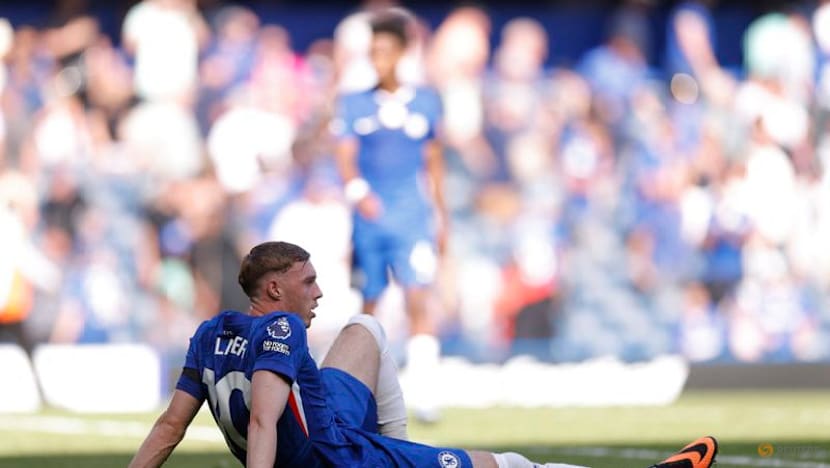FIFPRO urges calendar overhaul as Club World Cup players face burnout risk

Soccer Football - Premier League - Chelsea v Crystal Palace - Stamford Bridge, London, Britain - August 17, 2025 Chelsea's Cole Palmer reacts after the match Action Images via Reuters/Andrew Couldridge
Soccer bodies must urgently find a way to have more balanced competition calendars while providing adequate rest and recovery periods for players who are nearing breaking point without proper off-seasons, players' union FIFPRO has warned.
In its player workload monitoring report looking into the 2024-25 season, FIFPRO provided evidence of rising health and performance risks due to calendar congestion, especially for players who took part in the Club World Cup.
Teams like Paris St Germain, Chelsea, Real Madrid and Manchester City had less than the 28-day recommended minimum off-season, while finalists PSG and Chelsea had fewer than two weeks of pre-season - less than half the recommended minimum.
"The big problem that you have in discussions around the calendar is that people tend to look at this only in isolation and by competition or just a specific period of time that is typically one year," said Maheta Molango, CEO of the Professional Footballers' Association and FIFPRO board member.
"What those reports enable us to do is take a look at the broader picture and look at what happens in consecutive seasons. That's where you start drawing some interesting conclusions."
NO SUMMERS OFF FOR PLAYERS
"You'd have the likes of Cole Palmer, who has been mentioned in the report, who if he's lucky enough to be fit and is called up for the next World Cup, would go three consecutive summers without a break," Molango added.
Palmer played for England, who reached the Euro 2024 final, and Chelsea, who won the Club World Cup this year, with the 23-year-old expected to play for his country at the 2026 World Cup.
He has since suffered groin problems twice at the start of this season and the report showed how soccer's relentless schedule stands in stark contrast to other major sports.
While American leagues like the NBA and MLB guarantee their players an off-season of at least 14-15 weeks if they reach the finals, European soccer teams had barely three weeks to recover, creating a negative knock-on effect on players.
"The timing of the Club World Cup has had an extremely negative impact on the rest and recovery periods of players and also on the retraining period," said Alexander Bielefeld, the director of global policy and strategy at FIFPRO.
PHYSICAL AND MENTAL TOLL ON PLAYERS
The report showed how Achraf Hakimi played 53 matches for PSG and Morocco in 2023-24, giving him a 32-day-long off-season break. But that was reduced to 22 days when he played 69 games last season.
Darren Burgess, FIFPRO's high-performance consultant, said apart from the physical strain, a very short off-season also takes a mental toll on players.
"It's a perfect combination which leads to, at worst, injury and at best a reduced capacity to perform," he said.
Player travel, especially during international breaks, was also highlighted in the report, with many players clocking thousands of miles flying from Europe to South America or Asia.
FOUR GAMES AND 25,000 KILOMETRES
FIFPRO gave the example of Chelsea's 115 million-pound ($154.10 million) signing Moises Caicedo covering nearly 25,000 km to play four matches in 14 days for his club and Ecuador, playing 90 minutes in each game.
Nottingham Forest's New Zealand striker Chris Wood said it was "vitally important" that players had a recovery period to allow the body to adapt before the return to training for the next game.
"You play a game on a Saturday and if you've got international travel, coming back to play for my country in New Zealand, sometimes I'm on a plane three hours after finishing a game for Forest," Wood said.
"I'm on the plane ready to travel the 30 hours back to New Zealand. Recovery of the body, the muscular side of it is not perfect, sitting on a plane, even in most cases if we get a lie-down seat.
"It doesn't give your body enough time to adapt or recover from the extreme workload you do from a game ... It's a long way to travel. And then to be prepared and ready to train and go again three or four days later has a big effect on the body."
($1 = 0.7463 pounds)













